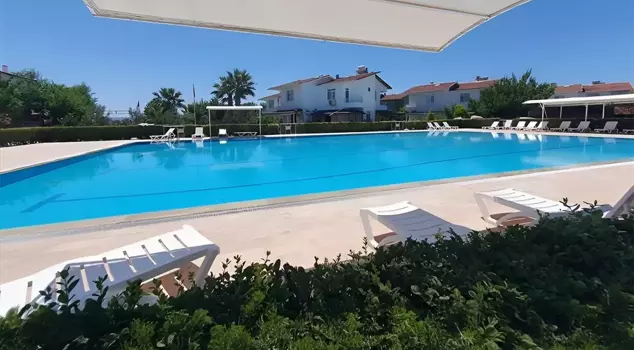
29.03.2025 15:50
The penalty for the site management that refused to allow children to enter the pool on the grounds that they were wearing modest swimsuits has been determined. The Turkish Human Rights and Equality Institution (TİHEK) imposed an administrative fine of 204,285 lira, the maximum amount, on the site in question.
According to the decision of the Turkish Human Rights and Equality Institution (TİHEK), H.K., born in 2011, and S.K., born in 2016, went as guests with their parents to their relatives' summer house located in a holiday site in Tekirdağ to spend their summer vacation. The children, who were prevented from entering the pool and were removed from the pool area by the site's security personnel on the grounds that they were wearing "modest swimsuits," reported the situation to their parents.
RELIGION AND BELIEF DISCRIMINATION VIOLATED
The family's request to the site managers to abandon the aforementioned practice was rejected on the grounds of the site management board's decision stating that "it is prohibited to enter the pool wearing t-shirts, dresses, and similar clothing, except for swimsuits, bikinis, and shorts." The family, who cut their vacation short due to the incident, applied to TİHEK, claiming that their children were subjected to discrimination. TİHEK, which evaluated the application, imposed an administrative fine of 204,285 lira at the upper limit on the site management for violating the prohibition of discrimination based on religion and belief.
CONSTITUTIONAL EQUALITY REMINDED IN THE JUSTIFICATION
In TİHEK's violation decision, it was reminded that the Constitution guarantees that everyone is equal and prohibits all forms of discrimination. The decision pointed out that according to Article 24 of the Constitution, everyone has the freedom of conscience, religious belief, and opinion, and stated that in the incident subject to the application, actions contrary to legal regulations were taken. The decision noted that the prohibition of discrimination was also violated in the concrete case, stating the following: In the concrete case where the site management could not prove that it did not violate the prohibition of discrimination and the principle of equal treatment; the practice of not allowing those wearing modest swimsuits to benefit from the pool was evaluated as direct discrimination, which is listed among the types of discrimination in Article 4 of the Law No. 6701 on the Turkish Human Rights and Equality Institution. It was concluded that the prohibition of discrimination was violated by preventing the applicants from benefiting equally from the service provided compared to other individuals due to their religion and belief.